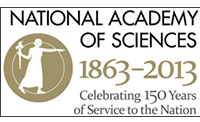
John Reilly, co-director of the Joint Program on Global Change, served on the committee responsible for a new National Research Council (NRC) report on the “Effects of U.S. Tax Policy on Greenhouse Gas Emissions.”
The report found that while tax policies can make a substantial contribution to meeting the nation's climate change objectives, the current approaches do not. In fact, current federal tax provisions have a minimal net effect on greenhouse gas emissions. While the report does not make any recommendations about specific changes to the tax code, it says that policies that target emissions directly, such a carbon tax or cap-and-trade system, would be the most effective and efficient ways of reducing greenhouse gases.
Reilly, with colleague Sebastian Rausch, authored a report last summer that demonstrated the benefits of a tax on carbon emissions, that could be part of a broader tax reform package.
“Congress will face many difficult tradeoffs in stimulating the economy and job growth while reducing the deficit,” said Reilly at the time the report was released. “But with the carbon tax there are virtually no serious tradeoffs. Our analysis shows the overall economy improves, taxes are lower and pollution emissions are reduced.”
The study — “Carbon Tax Revenue and the Budget Deficit: A Win-Win-Win Solution?”— calculated the impact a carbon tax starting at $20 per ton would have using a national economic model that details energy, taxes and household incomes. Reilly and his co-author Sebastian Rausch, now at ETH Zurich University, found that the tax would raise $1.5 trillion in revenue. That money could then be used to reduce personal or corporate income taxes, extend the payroll tax cut that expires this year, maintain spending on social programs—or some combination of these options—while reducing the deficit.
The NRC study came after Congress requested that a committee evaluate the most important tax provisions that affect carbon dioxide and other greenhouse gas emissions and estimate the magnitude of the effects. The report considers both energy-related provisions — such as transportation fuel taxes, oil and gas depletion allowances, subsidies for ethanol, and tax credits for renewable energy — as well as broad-based provisions that may have indirect effects on emissions.
Reilly notes that his “win-win-win” study on carbon taxes showed that by “shifting the market through a tax on emissions rather than through tax credits for renewable sources, the nation would be raising revenue rather than spending it.”
Parts of the NRC’s media release were adapted for use in this news story.
To read more about the NRC’s report, click here.
To read more about the “Carbon Tax Revenue and the Budget Deficit: A Win-Win-Win Solution?” click here.

